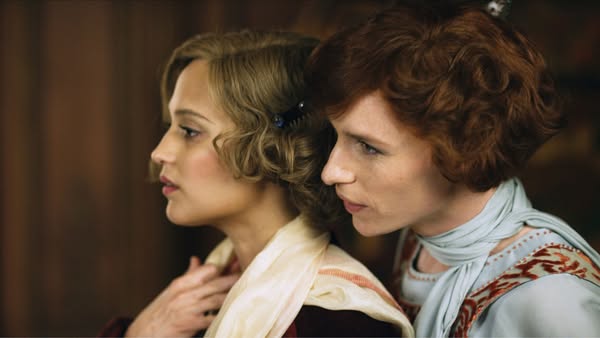The Danish Girl (2015)

The Danish Girl (2015) is a poignant biographical drama that explores themes of identity, love, and the complexities of gender transition. Directed by Tom Hooper, the film is inspired by the true story of Lili Elbe, one of the first known recipients of gender confirmation surgery. With powerful performances by Eddie Redmayne and Alicia Vikander, the film delves into the emotional and societal challenges faced by Lili as she embarks on her journey toward self-discovery and acceptance.
Set in the early 20th century, the narrative follows Einar Wegener (Redmayne), a successful landscape painter who begins to explore her gender identity when her wife, Gerda (Vikander), asks her to pose as a female model for her artwork. As Einar dons women’s clothing and adopts the name Lili, she gradually comes to terms with her true self. Redmayne’s portrayal is both sensitive and compelling, capturing the inner turmoil and awakening of a person grappling with their identity in a time when such issues were not understood or accepted.

Gerda’s role is equally significant. Vikander delivers a remarkable performance, portraying a woman who loves her husband deeply while facing her own struggles with Lili’s transformation. The film beautifully illustrates the complexities of their relationship, showcasing Gerda’s supportive yet conflicting emotions as she navigates her husband’s transition. Their love story serves as a testament to the power of love and acceptance, even in the face of societal norms and personal challenges.
The cinematography in The Danish Girl is striking, with a focus on rich colors and soft lighting that evoke the period’s artistic sensibilities. The visual style complements the emotional weight of the narrative, creating a dreamlike atmosphere that reflects Lili’s inner journey. Hooper’s direction ensures that each frame is infused with tenderness and depth, enhancing the film’s exploration of identity and self-acceptance.

The film also addresses the broader societal context of gender identity during the early 1900s. Lili’s journey is fraught with challenges, including medical misunderstandings and societal prejudice. The portrayal of her experiences serves as a reminder of the historical struggles faced by transgender individuals, highlighting the need for compassion and understanding in a world that often resists change.
The Danish Girl is notable for its exploration of the theme of transformation, not only in terms of Lili’s physical transition but also in the evolution of her relationships. As Lili becomes more confident in her identity, the dynamics between her and Gerda shift, leading to moments of profound intimacy and heartache. The film poignantly captures the sacrifices and triumphs of both characters as they navigate their evolving identities and love for one another.

The emotional depth of the film is further enhanced by its score, composed by Alexandre Desplat. The music beautifully underscores the film’s tender moments and heightens the emotional impact of key scenes, drawing viewers deeper into Lili’s journey.
In conclusion, The Danish Girl is a beautifully crafted film that sensitively explores the complexities of gender identity and the power of love. Eddie Redmayne and Alicia Vikander deliver unforgettable performances that bring to life the struggles and triumphs of Lili Elbe and Gerda Wegener. Through its rich storytelling, stunning visuals, and emotional depth, the film invites audiences to reflect on the importance of authenticity and acceptance in a world that often challenges the very essence of who we are. The Danish Girl stands as a significant contribution to the conversation about gender identity, reminding us of the courage it takes to be true to oneself.











